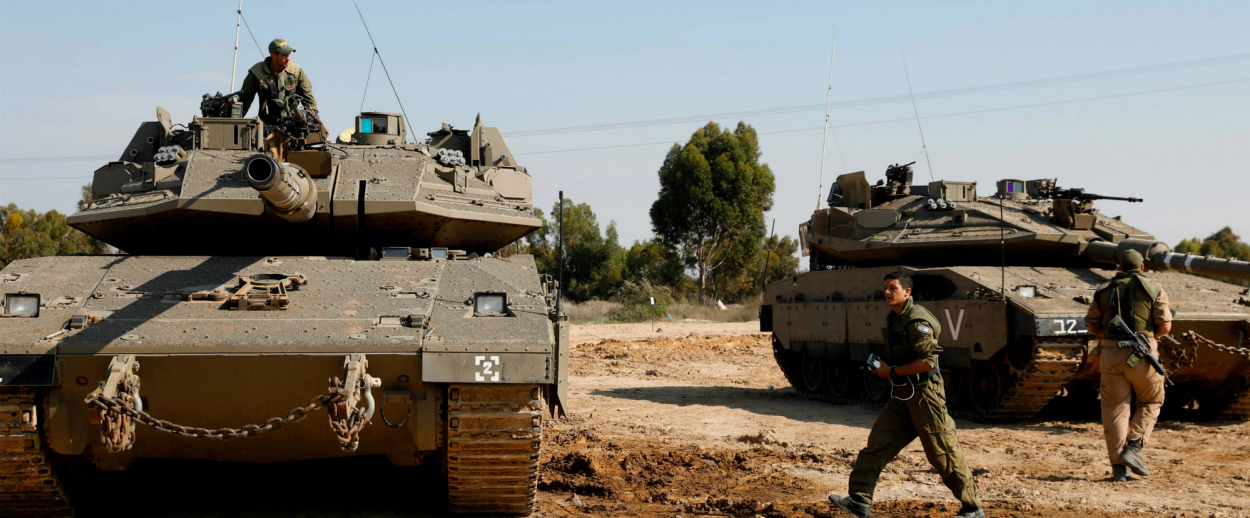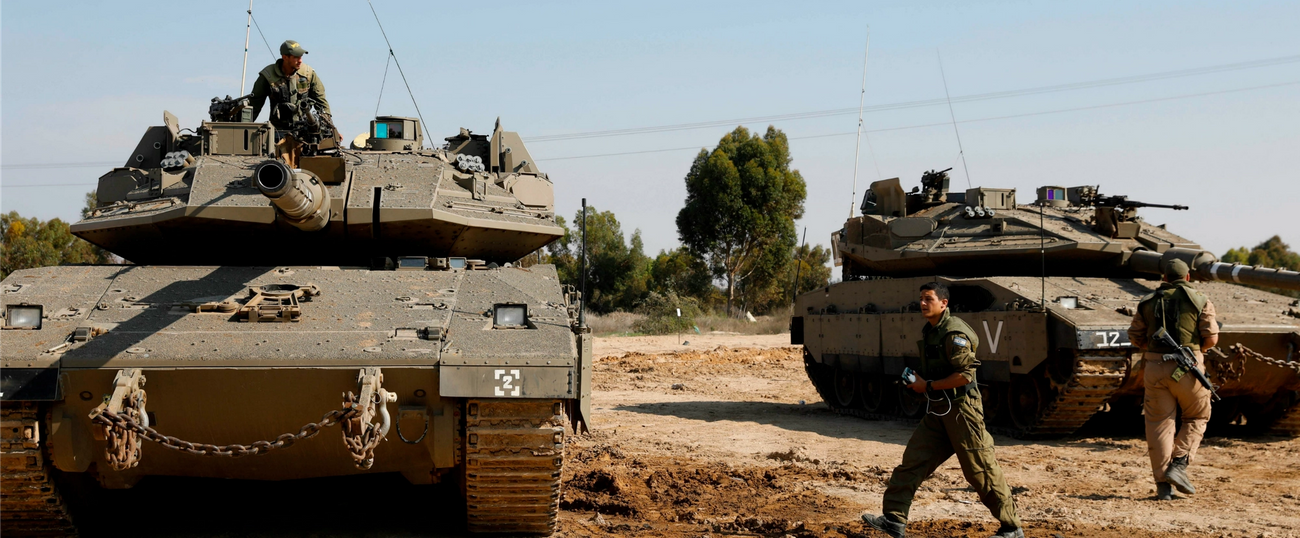Is Israel Headed for Another Gaza War?
Just days ago, millions of dollars meant to buy calm finally made it into cash-starved Gaza—so why does Israel now appear to be on the brink of another war with Hamas?




When Benjamin Netanyahu arrived in Paris over the weekend it was just after $15 million from Qatar had arrived in Gaza late last week. The money was supposed to buy quiet. There was no official ceasefire but a significant monetary incentive to maintain one unofficially. In a Paris press conference Sunday, Netanyahu stressed the importance of de-escalation and avoiding war in Gaza. Within 24 hours of those remarks, Israel’s prime minister had canceled his visit and was flying back to Israel as his country appeared to teeter on the brink of war.
By the time Monday was over, the Israeli Air Force had destroyed dozens of targets inside Gaza while Hamas and other militant factions fired a combined total of 400 rockets, mortars and other indirect fire projectiles into Israel—possibly the most attacks ever launched in a single day. By Tuesday morning, reports were of one Israeli killed and one seriously wounded, and six Palestinians killed in the exchange of fire.
The question, then, is how did a $15 million investment in quiet turn so quickly into one of the largest clashes in years.
It started Sunday when an Israeli Special Forces reconnaissance mission was compromised deep inside Gaza. The Special Forces team had entered a mosque near Khan Yunis in southern Gaza on what Israeli officials have called an “intelligence-gathering mission” when the group’s identity was somehow exposed and they came under attack. That led to a hasty withdrawal in which the team called in close air support from the Israeli Air Force to provide cover as they exfiltrated back across the border. The group’s leader, a Druze officer who has been identified only as Lt. Col. M, was killed, but the rest of the Special Forces team made it back into Israel with one other casualty, a reserve officer who was moderately wounded.
IDF spokesperson Ronen Manelis provided this official statement: “IDF troops that operated last night in the Gaza Strip became trapped in a highly complex situation. The soldiers acted heroically, hit those who threatened them and extracted themselves to Israeli territory.” On the prime minister’s Twitter account he wrote in Hebrew, “I bow my head in sadness at the loss of Lt. Col. M., a glorious fighter who fell during an IDF operation in the Gaza Strip. The day will come when we can tell of all his valor. The citizens of Israel owe him an enormous debt.”
According to Israeli news reports, seven Hamas members were killed in the initial battle, including Qassam Brigades commander Nour Baraka.
On Monday Hamas initiated a large-scale response, starting with an antitank missile fired across the Gaza border, striking an Israeli bus and seriously wounding one passenger. By Monday afternoon, hundreds of rockets were fired into Israel in the largest barrage since the 2014 Gaza war, and what may be the largest ever single-day attack. Most were reportedly intercepted by Israel’s Iron Dome defense system. Israel’s Air Force carried out 70 airstrikes in Gaza on Monday, according to military sources, striking targets including tunnel facilities and civil-military structures like Hamas’s Al Aqsa TV station, which Israel has accused of directing operational attacks and military actions.
By Tuesday morning, attacks had dropped off but it was unclear what would come next.
In recent months, even as tensions on the Gaza border have escalated, most observers of Israel’s tense relationship with Hamas have concluded that neither side is seeking war. Hamas has been locked in a power struggle with the West Bank-based Palestinian Authority. The PA wants to isolate Hamas and deprive it of popular support in order to consolidate its own political power and, to that end, cut off payments to Gaza depriving Hamas of the cash necessary to pay civil servants and maintain its military-political infrastructure. That put Israel in a position to either further isolate Gaza, and in turn empower the PA, or relieve pressure on the government and local population by allowing outside money in that would strengthen the Hamas government. Enter Qatar. The recent cash infusion from the Gulf Arab state, which Netanyahu had approved just before this latest round of fighting, was the first in a series of scheduled payments totaling $90 million in coming months.
Netanyahu’s decision to let the Qatari money in, breaking the PA’s embargo, was widely seen as a way of buying a period of calm. Now that investment appears to be in jeopardy as a result of the kind of clandestine operation inside Gaza that Israel regularly carries out without incident but that, in this case, was too public to be ignored.
As a headline in today’s Jerusalem Post put it: “This is How a War in Gaza That Nobody Wants Begins.”
Jacob Siegel is Senior Editor of News and The Scroll, Tablet’s daily afternoon news digest, which you can subscribe to here.